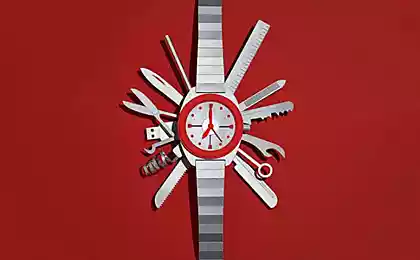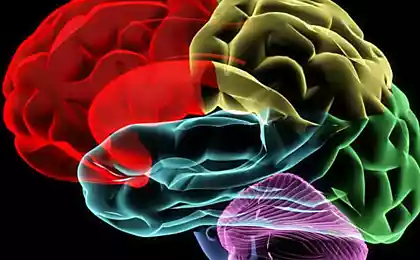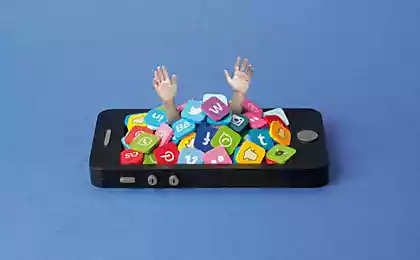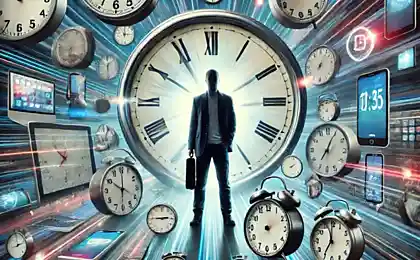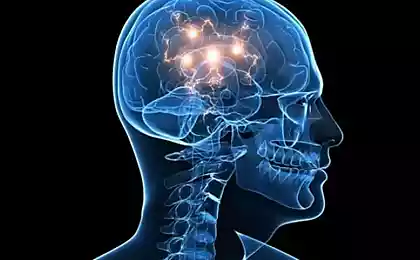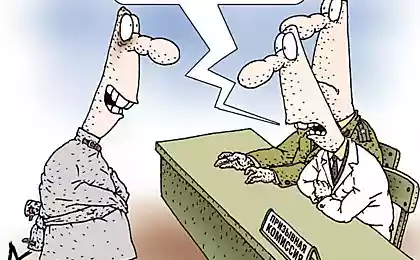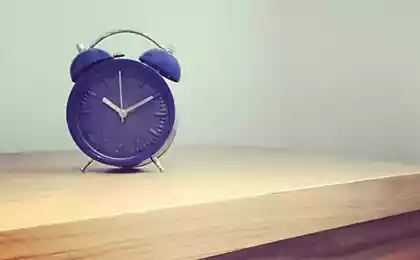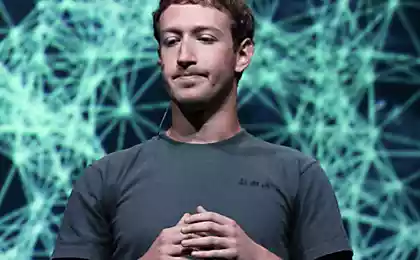726
Say "no" to multitasking
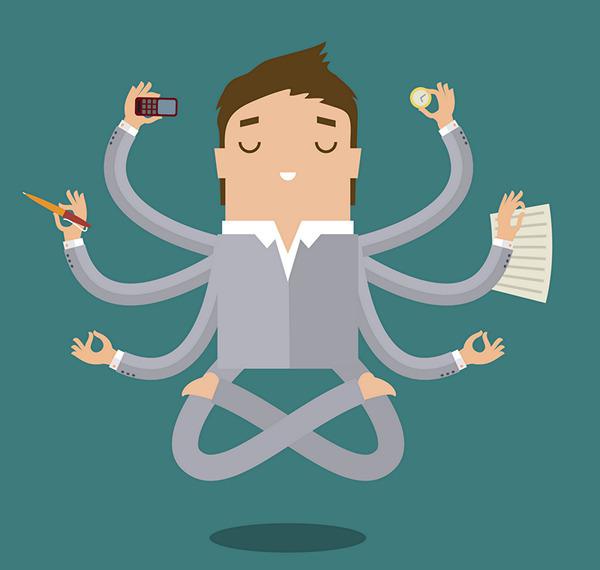
Technological development has made us not freer, it has not given us more time for self-development. No, we work as much (if not more), just efficient. And one of the consequences of progress was such a thing as multitasking. Numerous gadgets worldwide network, online services - all this provokes perform multiple things at once. By pushing and prevailing in our culture of the effectiveness of employees. But it is also a fundamental error, because our brain and consciousness in its architecture is not suitable for multitasking.
Question to the filling: how many do you have now opened in a browser tab? Probably about 10, and someone closer to 20. And all you need is: you are looking for some information, keep in touch with clients and colleagues, studying the important materials on their profession, reading the news.
Today, very few of us can take any one task and only deal with it without being distracted to anything else. Certainly among the readers of this post, there are those who have already managed to escape on a mobile phone, reading e-mail messages in the messenger or social networking. But listen to your inner sense: the constant switching between tasks is feeling short of breath, racing, permanent employment, fear of missing something or do not have time.
Is it not better things in the evening we eat in front of televisions, laptops and tablets, listen to the radio while you read. As if we are afraid to focus on something one. Constant spraying attention switching from task to task distracts us from doing some of the main case. Furthermore, over time, many people are not able to concentrate on long something. And this problem of our time.
Why are we constantly distracted?
Because of this it is difficult to resist. Modern technology has made it very easy and simple execution of multiple tasks. Smartphones have become an analogue multitool, a Swiss knife, they can do anything. Probably, there is no longer a task for which would not have written the mobile application.
In such circumstances, it is difficult to resist the temptation not to benefit from the "free" because, clever gadget time. For example, listen to music and chat with your friends while you ride the subway or bus. Or laykat posts on Facebook and VKontakte, sitting with his second half in a cafe. And then suddenly something important to write, and you are not in the subject.
I must say that our brain is a situation very much. It turns out that when we immerse ourselves in multitasking, the brain вырабатывает Dopamine - « happiness hormone ». In fact, the activated one of the main physiological mechanisms of reward for what you do so much at once. In addition, our attention can easily bring something bright, luminous, new. Thus, we are very similar to the forty. Therefore, the brain rewards us a portion of dopamine every time we turn a working document and climb to check the mail. And if there is more and more letters came, the reward becomes more generous. And we quickly become dependent.
And that's bad
Alas, multitasking leads to the emergence of stress. In addition to dopamine, also produced cortisol - «гормон stress ». It affects a number of organs and properties of our body, from the ability to store up muscle tone.
It would seem simple enough not to be distracted by other tasks, and everything will be fine. No multitasking - no problem. Alas, it is not. The brain is not so easy to cheat: the very existence of the possibility of (!) To escape to another occupation already reduces our ability to to solving problems and reducing IQ by about 10 points. In other words, the brain grows dull little face open up opportunities for the transition to multi-tasking. Moreover, it is believed that in this case reduced cognitive ability is stronger than after употребления prohibited plants . So it is useless to engage in auto-training and raising willpower, patiently ignoring the tab mailbox. From this it will only get worse.
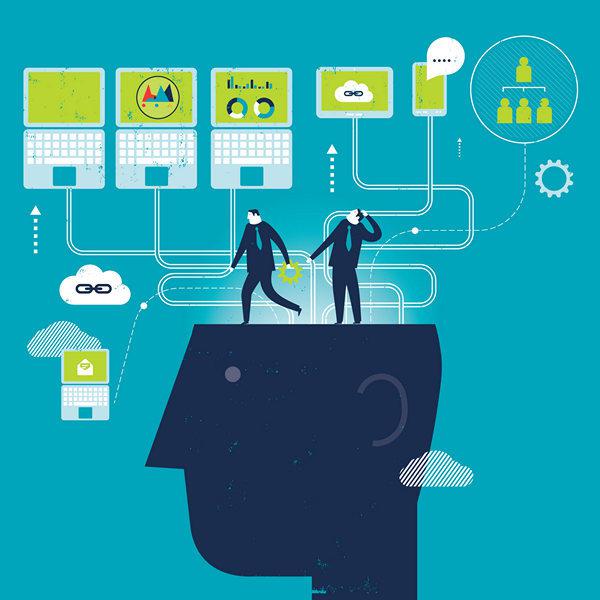
The myth of multitasking efficiency
Some people believe that the constant practice of the simultaneous execution of several cases can someone become a master of multitasking. Like such sensei can do much more and faster than other people. Logically it? Just a godsend for any HR.
However, this can be attributed to the urban myths. In the vast, vast majority of cases of multi-tasking adherents cope with the tasks much worse than "normal" people are concentrating on something one. Occasionally occur only ones , which allows multitasking really be much more effective, but little more than unicorns in the wild. The bulk of this population does not have the innate bonus.
What distracts us often?
If we talk about the workplace, then hits "otvlekateley" headed by the flow of e-mails from colleagues, superiors and customers. Alas, corporate orders usually require to respond to correspondence as soon as possible. Business is business. In many companies, it is given a value that people fixated on the speedy processing of incoming messages to the box was a virgin. But employers thereby reduce the effectiveness of the labor of their own employees.
The problem is complicated by the fact that often it is necessary not just to respond immediately (unsubscribe) and take some decision. And it already requires significantly more resources of our brain, not to mention time. Naturally, when constantly having to be distracted, thinking about some issues raised in the letters and solve something, then meanders forces and the principal activity remains a bit. The brain is constantly solve a variety of tasks quickly depletes energy and we begin to feel physical fatigue and inability to concentrate. And not much something to help all sorts of solutions to streamline work with e-mail: you still have to constantly decide whether to respond to this letter at once, or you can postpone it for later.
While it would be unfair to lay all the blame on the authorities alone. Unfortunately, we do push each other to ensure that as soon as possible to respond to the letter. Admit to yourself that when you write to someone, you realize it or not, you expect speedy - instant - response. Today we are on a short leash of communication: we can "get" via e-mail, instant messengers, social networks, SMS, simply by calling at last. It has become virtually impossible to explain its delay in replying to the letter of the absence in the office. "What are you, smartphone could not check e-mail?»
On the other hand, the need for a speedy response we dictate social conventions: a person is offended / angry if I had a long pull with the answer. And now there are tools that notify you that the recipient read your letter . So do not even say, Now, "I'm sorry, I have your letter just recently saw." Still, a normal paper mail has undeniable advantages ...
A Do you know the term "cold contact"? This is when you shlёte letters to people who do not know. Suppose the collected business cards and the exhibition or customer base. Or, even worse, spam-based of potential customers. It employs a feature of our psychology that because we do not know all these people, but we think nothing of bombing their letters, hundreds of them can even send. At this writing, these impersonal copy-paste. And we are constantly becoming a destination for such "cold contacts", wasting a lot of time sorting and raking. Irritating.
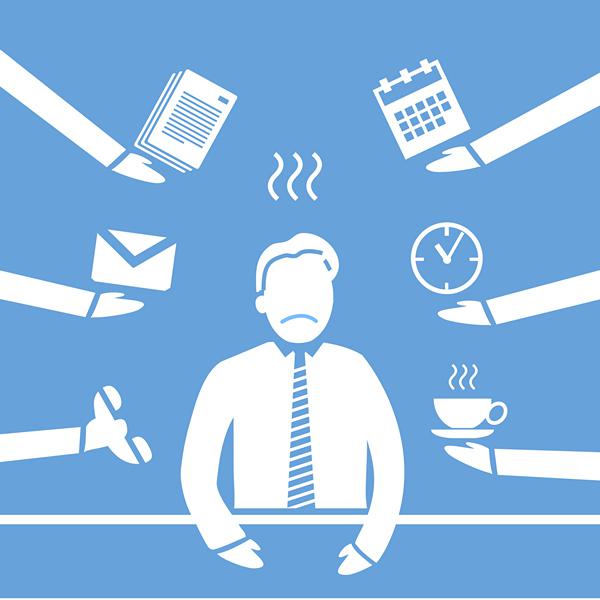
So what to do and where to go?
If you think that there is some universal / gold / optimal solution, it does not fall into the trap of multi-tasking, you'll disappoint you. On the problem will have to come complex.
plans to do in the evening
«Method tomato» ( Pomodoro technique ). In the late 1980s, the Italian Francesco Cirillo came up with a technique for time management, calling it "method of tomatoes." The essence of it is this: you split your time on a 25-minute periods of intensive work, interspersed with five-minute breaks. It is believed that this approach allows you to keep working and vitality of thought during the day.
Select the time during the day to work with e-mail
In general, you are unlikely to completely eliminate from your life multitasking. Too many opportunities and temptations. It is necessary to have a tungsten willpower to ignore a bunch of SMS, messages and letters for a long time, not to give in to "I just quickly see if there is anything new," and "I need to distract and change the type of activity." What to do, fight with their own hormones - a difficult matter. But with the help of the above methods, you can make your day more orderly, less tired, and to work better and faster.
By the way, listening to music is not a multitasking because of its perception another part of the brain responsible . So productivity music, in theory, is not affected.
Source: geektimes.ru/company/asus/blog/259474/
Service popular vote Toplists
Researchers from Sweden have created genetically modified rice with increased yields and reduced greenhouse gas emissions


